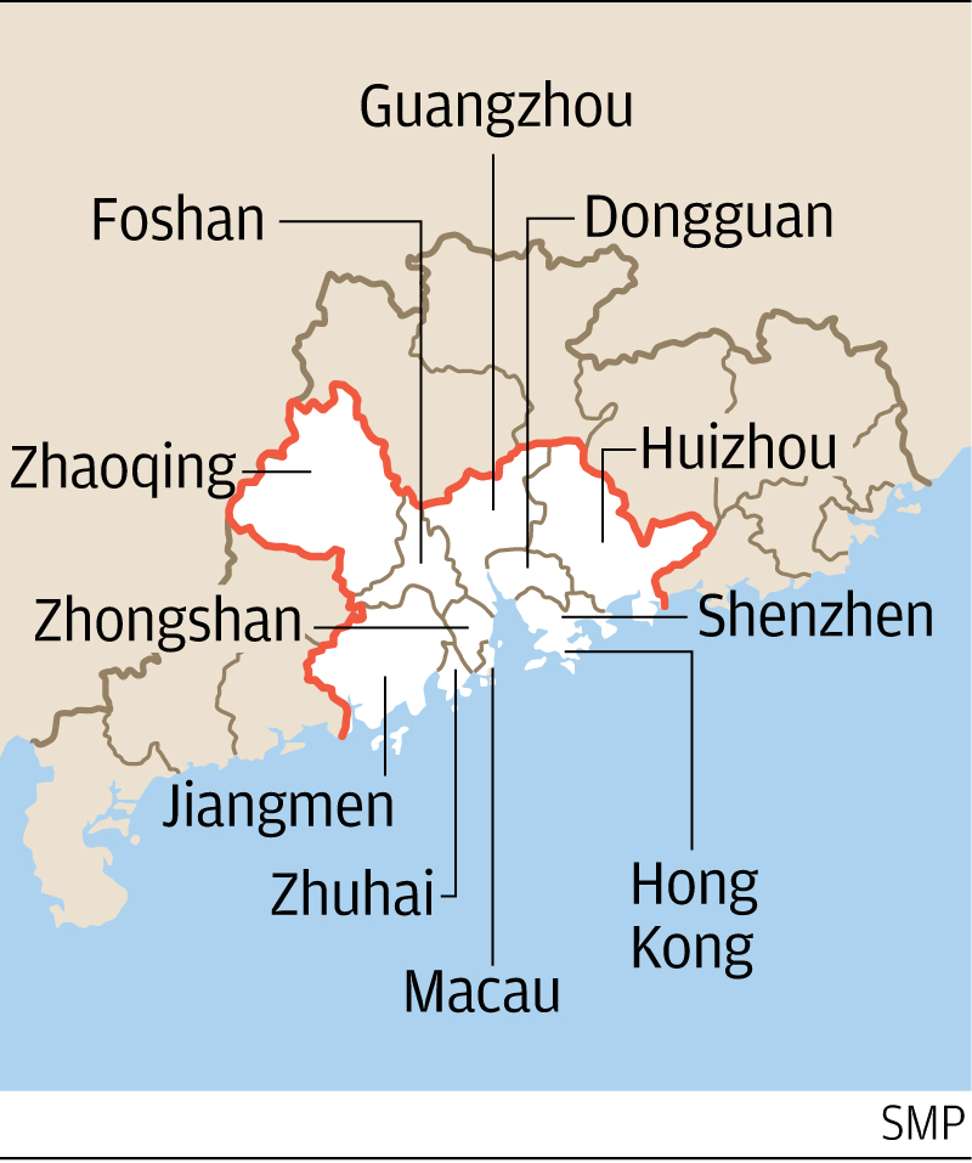
Analysis | Hong Kong is odd man out in plan to integrate bay area
Analysts say the city’s distinctive administrative and legal systems pose a challenge for the Guangdong-Hong Kong-Macau Greater Bay Area scheme
Hong Kong’s special status in China is seen as a key challenge for a plan to integrate it economically with the cities around it, with observers calling on Beijing to establish a coordination committee to address the issue.
The Guangdong-Hong Kong-Macau Greater Bay Area plan surfaced in Premier Li Keqiang’s annual work report during the National People’s Congress (NPC) session this month. It aims to coordinate development in the area, to tap into markets in Southeast and South Asia and lift the region’s competitiveness with rival bay areas in New York and Tokyo.
The bay area scheme was first floated in a 2011 study of development possibilities involving Hong Kong, Macau, Shenzhen, Dongguan, Guangzhou, Zhuhai and Zhongshan.
However, planning experts said the principle of “one country, two systems”, which preserves Hong Kong’s separate administrative and legal systems, posed integration challenges.
Professor Lin Jiang of Sun Yat-sen University said he was not optimistic about the prospects for integrating Hong Kong and Macau with the other nine Pearl River Delta cities, after observing various cross-border integration talks over the years.
“Not much seemed to be done in those talks, which appeared to be routine meetings without concrete products,” Lin said.
“There is an urgent need to set up a super-governance mechanism to oversee, explore and coordinate integration development plans among the nine delta cities and two special administrative regions of Hong Kong and Macau.”
Lin said such a committee could enhance dialogue and counter administrative and legal constraints. It could ultimately help integrate the public services, laws and financial markets of the bay area.
Lin said the bay area plan also needed to clearly define what role each city would play in the integrated region.
Earlier this month, Guangdong development and reform director He Ningka called for a “national-level coordination mechanism” to ensure collaboration in the region went smoothly.
Planning expert Professor Chen Guanghan of Sun Yat-sen University was quoted by Xinhua as saying that the “one country, two systems”principle posed a challenge to the bay area scheme.
“The diversity of different institutions and how they complement each other is likely to be costly and serve as a factor obstructing regional development,” Chen said.
“Hence, the ultimate target for the Greater Bay Area Plan is to ensure maximum gain and minimum cost,” he said.
NPC representatives from Hong Kong highlighted during the parliamentary sessions in Beijing this month the importance of sorting out any legal issues between Hong Kong and the other cities that are part of the plan.
Hong Kong chief executive Leung Chun-ying said yesterday at the Boao Forum in Hainan that he recognised growing rifts in Hong Kong had hindered many of the legislative procedures involved in the bay area plan.


